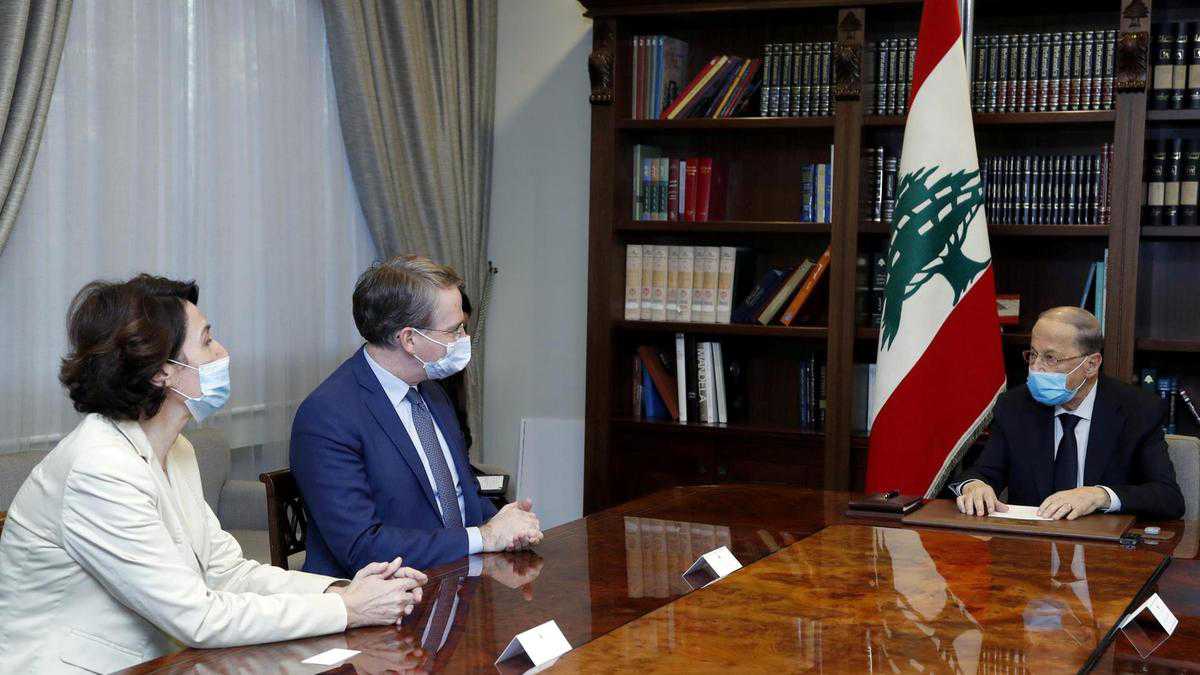France and US stand organization on Lebanon aid: zero help without reform
22 November, 2020

Western powers wanting to rescue Lebanon's teetering economy have given the country's leaders an ultimatum: there will be very little bailout unless they form a credible federal government to overhaul a bankrupt express - and do it quickly.
France, America and other donors who all repeatedly found Lebanon's aid because the 1975-90 civil war are losing patience with its politicians, many of them familiar faces in charge through the country's descent into financial crisis.
Significant scale protests erupted against the ruling elite last year as persons blamed them for caring for vested interests while countrywide debts mounted. The pandemic additional strained resources and a huge port blast in August destroyed large regions of Beirut.
As dollars go low, simple goods including some medications are an issue and more persons in Lebanon are actually falling below the poverty series.
French President Emmanuel Macron, an all natural ally granted Lebanon is a ex - French colony, rushed to metropolis following the explosion and tried to convince politicians to introduce at least partial reforms to confront the crisis.
But rival factions are still mired in turf wars, and Lebanon has not formed a new government since the last one was brought down by the blast and its own aftermath. As in earlier deadlocks, each aspect blames the other.
In talks in Beirut the other day, Patrick Durel, an adviser to Mr Macron in the center East and North Africa, clarified that while Paris remains dedicated, "we will not bail them away unless there are reforms", according to several sources who were present.
"Those situations have changed", he stated.
A western diplomat said France was nonetheless trying to web host a planned conference in rebuilding Beirut by the end of November, but doubts remained.
"There are no developments," the diplomat said. "The Lebanese politicians happen to be back to their way of conducting business and what's stressing is the entire disregard for the population."
Tough conditionality
Dorothy Shea, the US ambassador to Lebanon, talking with an on line conference of the CSIS think tank on Washington on Fri, said the United States "gets that Lebanon matters" and that "avoiding state failure … should be first and foremost".
But she insisted that said the donor countries "can't really want it a lot more than they do".
Ms Shea said there will be no bailout without reforms.
"We got intelligent," she explained, adding there would be "a step-by-step methodology no free lunch".
Saad Hariri, the Sunni primary minister-designate beneath the country's sectarian power-sharing arrangement, is struggling to form a cabinet.
Some sources say initiatives have already been complicated by new US sanctions against Gebran Bassil, the son-in-rules of President Michel Aoun who heads the Free Patriotic Movement (FPM), Lebanon's major Christian party.
Mr Bassil was strike with sanctions on corruption expenses and ties with the Iran-backed paramilitary group Hezbollah, Lebanon's most effective party and a good strike-force for Tehran across the place, which Washington deems a terrorist organisation.
He denies the corruption expenses.
The primary sticking point, official sources say, is Mr Aoun and Mr Bassil's insistence on nominating Christian ministers within an 18-member government. Mr Hariri desires all ministers to come to be specialists and not affiliated to political get-togethers.
A source near the talks said some involved determined Mr Bassil as the main obstacle to a cabinet becoming produced. Mr Bassil denies the accusations, declaring that since others were able to nominate ministers, his party was entitled to the same.
A source acquainted with Hezbollah's thinking said that Mr Durel asked the group to attempt to persuade Mr Bassil, a close ally, to soften his stand, but that Hezbollah was reluctant to exert further more pressure on him as it could weaken him even more.
Hardened positions
Several sources reported the existing standoff was suicidal for the united states, which is running right through its overseas reserves fast. They are estimated at only $17.9 billion.
Because of the sanctions, which US ambassador Dorothy Shea acknowledged were section of the outgoing Donald Trump administration's "maximum pressure" campaign against Iran, Tehran and allies are opting to wait until Mr Trump leaves business office.
However, many officials in Lebanon warned against using the waiting game.
"The communication from the French now could be clear: no government, very little reform, then au revoir, merci," stated a senior political source familiar with the talks.
"And if the French wash their hands of the, then who will nonetheless seem at us? The Gulf? The US? Nobody.
"At the end of the day time, they don't really know how to cope with exceptional occasions and challenges … We're even now coping with government formation as though they are normal days."
Ms Shea said donors had to "adhere to their guns", otherwise the political elite would not take them seriously.
"If they don't look and feel the perception of urgency to create a government how can we keep carefully the pressure in them?" she explained. "They look at us and declare 'try to create us reform - It will likely be fun watching you'."
Source: www.thenationalnews.com
